Fox News Flash top headlines for March 12
Fox News Flash top headlines are here. Check out what's clicking on Foxnews.com.
Your favorite cycling or dance class is a great way to burn calories and boost heart health — but it might not be so good for your ears.
Some audiology experts are warning that the loud volume of group fitness classes — from the blaring music to the instructor shouting directions — can take a toll on your hearing.
Workout classes often play music at over 85 to 90 decibels for an hour, which exceeds the recommended limits from the National Institute for Occupational Safety and Health (NIOSH), according to experts.
ASK A DOC: ‘WHY ARE MY EARS RINGING, AND SHOULD I SEE A DOCTOR?’
Here's what to know.
What is a safe level of sound?
A safe sound level depends on the length of the class and the amount you are attending each week, according to Sabrina Lee, an audiologist at HearUSA in New York.
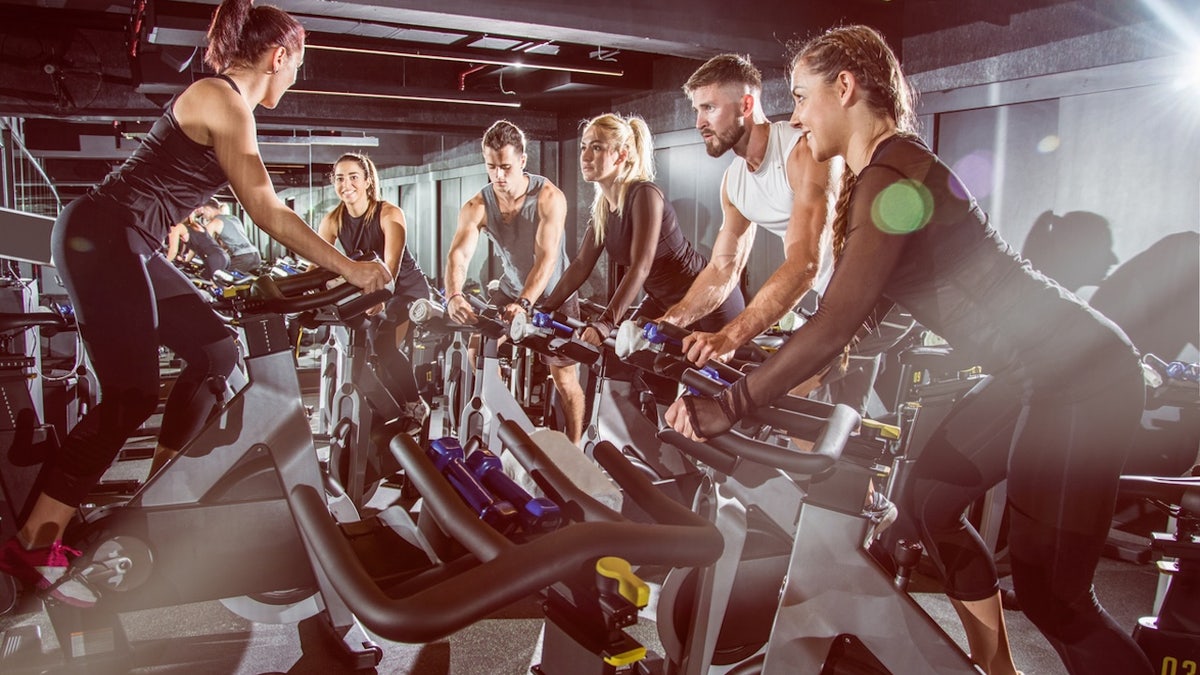
Some audiology experts are warning that the loud volume of group fitness classes can take a toll on your hearing. (iStock)
"Sounds at or below 70 decibels are considered safe for an extended period of time, meaning that if classes were constantly held at this sound level, you could do back to back classes or work as an instructor without any hearing concerns," she told Fox News Digital.
Noise levels should not exceed 85 decibels over a one-hour period, says the World Health Organization, which is about the length of a fitness class.
"It’s safe to say that for a typical fitness class, a safe sound level is at or below 85 decibels," Lee said.
EAR INFECTIONS IN YOUNG CHILDREN COULD LEAD TO DELAYED SPEECH FOR THEM, STUDY FINDS
Many classes exceed this level, the expert warned.
"High-intensity group fitness classes – like spinning, cardio or Zumba – can get up to and above 90 decibels, and sustain that volume throughout the class," she said.
"The rationale for this is that many believe higher volumes of sound promote more intensity in workouts, and [it's often] done as an encouragement to move to the beat."
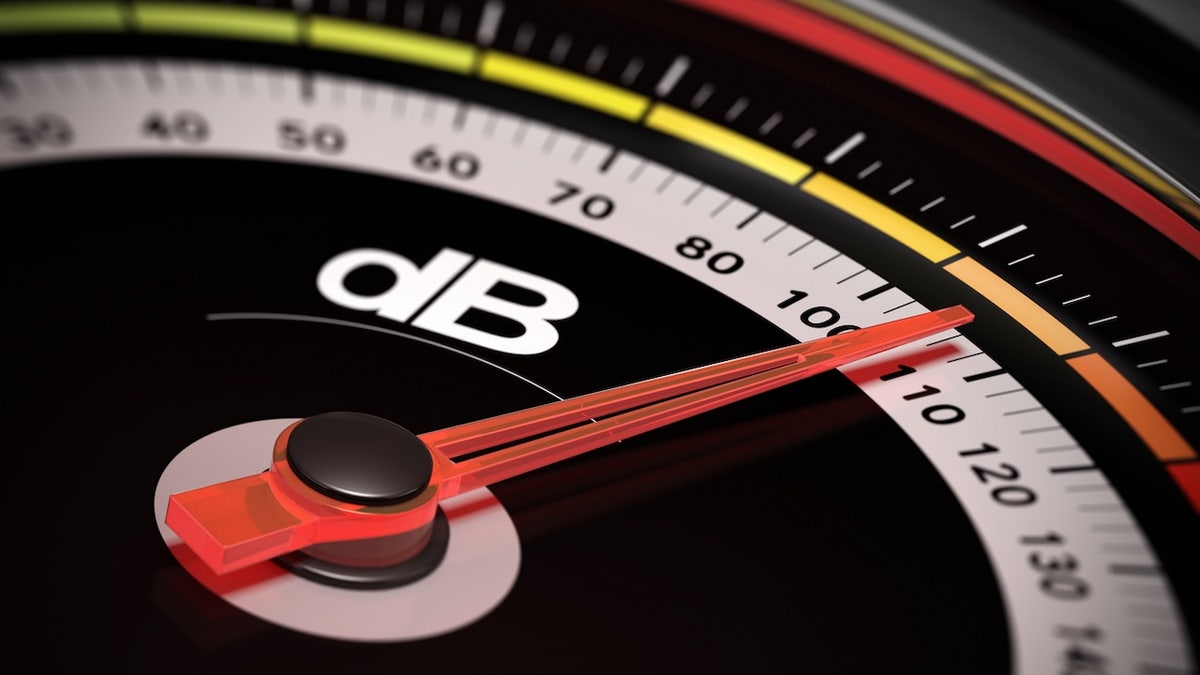
The World Health Organization recommends that noise levels should not exceed 85 decibels over a one-hour period. (iStock)
There is some science behind this, Lee acknowledged.
"Research does agree that music can help us engage well with a workout and can help motivate people to strive for intensity," she said.
"For a typical fitness class, a safe sound level is at or below 85 decibels."
"Aspects of music like a steady beat, motivational messaging and good, enjoyable sound are all things that can create a really dynamic and effective workout."
This can pose a danger, however, as people crank up the volume to boost their motivation without realizing the possible negative side effects, Lee said.
Signs of adverse effects on hearing
There are some almost-instant signs that noise exposure may affect your hearing.
"If immediately after exposure, you notice that sounds are muffled to you, or you have ringing or buzzing sounds in your ears, you are likely having a temporary change in hearing as a result of noise exposure," said Lee.
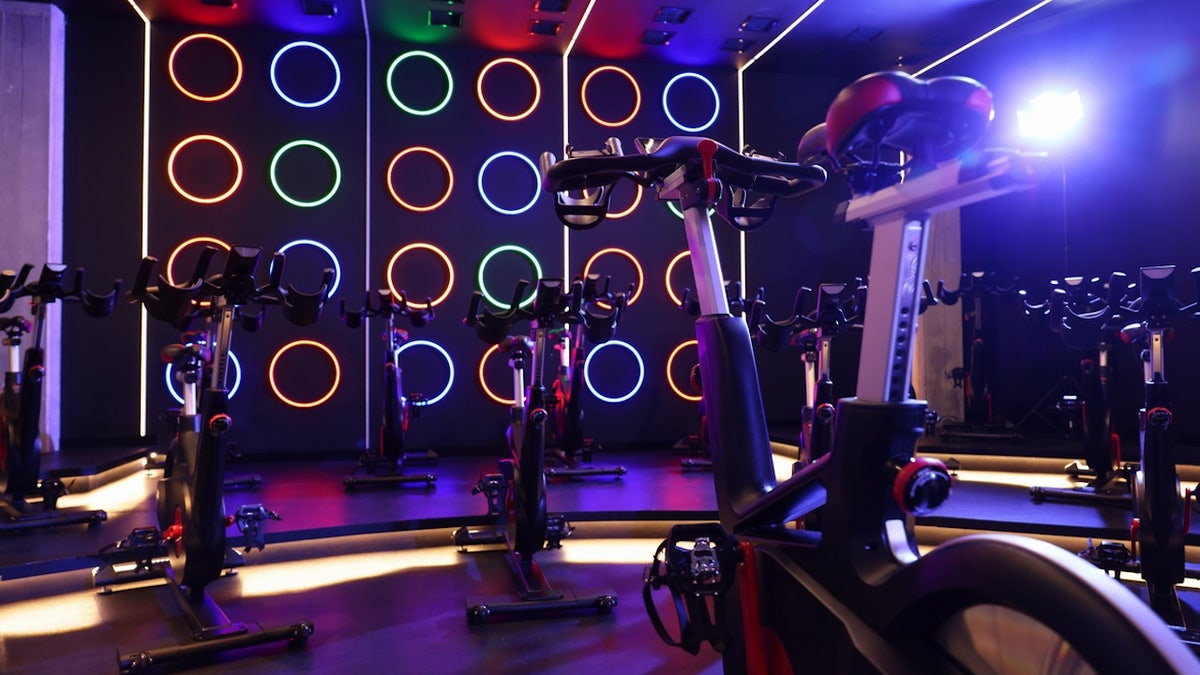
"High-intensity group fitness classes – like spinning, cardio or Zumba – can get up to and above 90 decibels, and sustain that volume throughout the class," an expert said. (iStock)
These symptoms will usually fade away, but over time with repeated exposure to high intensities of sound, these effects may begin to take a permanent toll, she said.
The warning signs of permanent hearing loss may be a little different.
"If you find yourself getting confused or lost in group conversations, asking people to repeat themselves, or notice yourself regularly turning the volume up on headphones or speakers multiple times in order to hear, you might be experiencing the early stages of hearing loss," Lee said.
ALL EARS FOR 'SEXY' HEARING AIDS: DESIGNERS TRANSFORM KEY DEVICES INTO COOL ACCESSORIES
Another sign of damage to hearing is experiencing ringing in your ears, known as tinnitus.
Anyone noticing these types of symptoms should see a hearing expert for an audiology test, experts recommend.
"This can diagnose where your hearing is currently and where it’s headed," said Lee.
How studios are ensuring safe sound levels
While experts say there aren’t specific regulations for audio levels in fitness facilities, many of them have opted to put their own guidelines in place.
"Many classes now offer ear protection at the studio for attendees, indicating a movement toward more inclusive hearing health activities," Lee said.
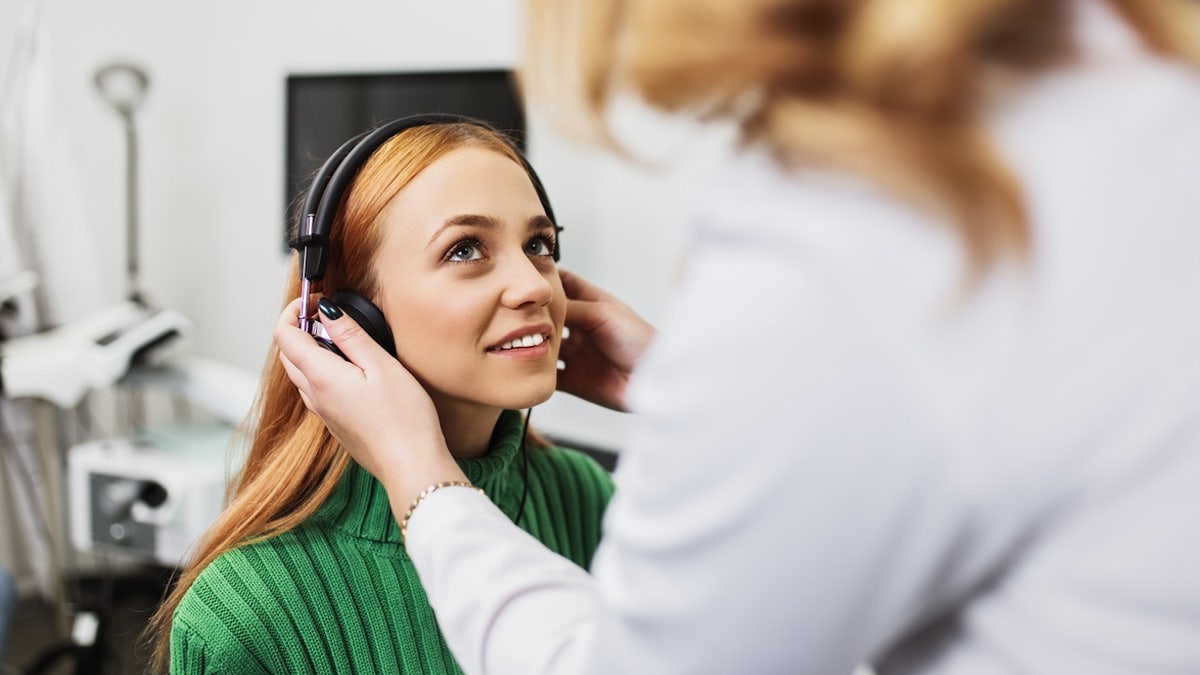
Anyone noticing symptoms of hearing loss should see a hearing expert for an audiology test, experts recommend. (iStock)
Orangetheory Fitness, a national chain of heart rate-based interval training studios, incorporates music as an integral part of the experience.
Rory Ellis, the Florida-based vice president of innovation and design at Orangetheory, spoke with Fox News Digital about how the company ensures members’ hearing safety.
"OTF's audio systems are meticulously installed and programmed to ensure that the maximum sound pressure levels do not exceed an average of 95 decibels during class, prioritizing safety without compromising on the intensity of the workout experience," Ellis said.
DEAF GIRL FINALLY TELLS SANTA WHAT SHE WANTS FOR CHRISTMAS AFTER ELF HELPS HER ‘SIGN’ HER WISH LIST
"To achieve a consistent and controlled sound environment, we employ customized signal processing techniques, such as compression and limiting."
One strategy that Orangetheory uses is microphone ducking technology, which helps ensure that the coach's voice remains clear and intelligible.

"Research does agree that music can help us engage well with a workout and can help motivate people to strive for intensity," an expert said. (iStock)
"This technology automatically lowers the music volume when the microphone is in use, maintaining the overall desired sound pressure level and eliminating the necessity or tendency to increase the microphone volume in an attempt to overpower the music," Ellis said.
"The direct result is a safer, more immersive and exciting audio-visual workout experience for our clients, where the clarity of coaching is maintained without sacrificing the dynamic atmosphere of the class."
Self-protective measures
If you find that the volume is too loud in a fitness class, there are several steps you can take.
Fitness class attendees and instructors should consider investing in a pair of comfortable hearing protection devices and wearing them when around the loud noise, recommended Brian Taylor, an audiologist and senior director of audiology at Signia Hearing in Minneapolis.
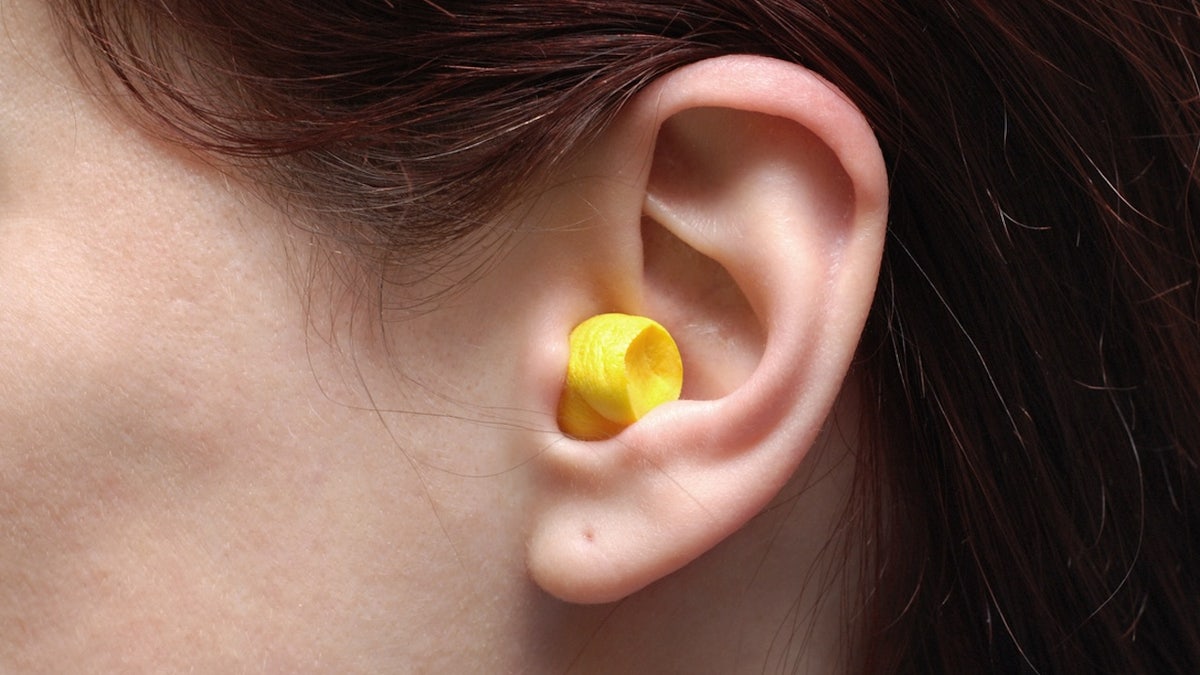
Earplugs can help maintain sound quality while reducing volume, an audiologist said. (iStock)
"So-called musician’s earplugs are a great choice for someone who is frequently exercising in a gym with loud music," he told Fox News Digital.
"These earplugs maintain sound quality while reducing volume, making them ideal for individuals who frequent classes with loud music."
"Length of exposure matters just as much as intensity of exposure."
Lee noted that it may also be possible to change to a different location in the class to get farther away from the speakers — and if that fails, it’s best to step out of the class."
She pointed out, "Length of exposure matters just as much as intensity of exposure … If noise levels are constantly too loud, even with hearing protection and while taking the above steps, it may also be worth considering looking into alternative fitness classes that refrain from playing loud music."
BEST 50 ROCK SONGS FOR THE ULTIMATE WORKOUT PLAYLIST
Lauren Tritle, an Orangetheory fitness instructor in Cincinnati who also attends classes herself, told Fox News Digital that the coaches are more susceptible to hearing damage due to the number of classes they lead on a daily or weekly basis.
"As a member, I prefer the music louder so I don’t hear people talking or myself breathing heavily," she told Fox News Digital.

Ringing in the ears, known as tinnitus, is one common sign of hearing loss. (iStock)
"However, paying more attention to the decibel meter would certainly assist in keeping everyone’s hearing safe," Tritle said.
Tritle also uses the Noise app on her smartwatch, and it rarely registers unsafe levels during class.
CLICK HERE TO SIGN UP FOR OUR HEALTH NEWSLETTER
In her experience as an instructor, Tritle has seen some members use the earplugs provided by the studio, but she has never had a member complain about the volume being too loud.
Hearing loss can occur at any age, although some people are at a higher risk than others.

Sabrina Lee, an audiologist at HearUSA in New York, weighed in on the risks of high volumes at fitness studios. (Sabrina Lee)
"Even seemingly innocuous amounts of noise can have an accumulative effect that warrants the use of hearing protection," said Taylor.
CLICK HERE TO GET THE FOX NEWS APP
"As people age, their risk for hearing loss increases. If you are in doubt about your hearing sensitivity, get it checked out by a professional."
Fox News Digital reached out to additional fitness studios requesting comment.


